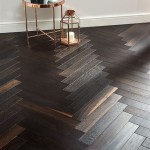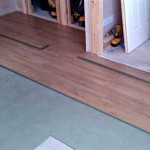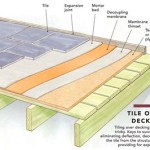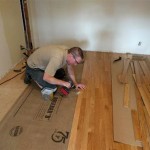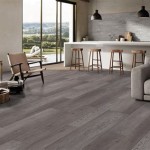What Is The Best Flooring For Basement Stairs?
Basement stairs present unique flooring challenges. They experience temperature fluctuations, potential moisture, and heavy foot traffic. Choosing the right flooring is crucial for safety, durability, and aesthetics. This article explores several popular basement stair flooring options, weighing their pros and cons to help homeowners make informed decisions.
1. Concrete
Concrete is a common choice for basement stairs due to its inherent durability and moisture resistance. It can be left unfinished for a utilitarian look or finished with various coatings for enhanced aesthetics. Epoxy coatings offer excellent moisture protection and can be customized with colors and patterns. Concrete sealers provide a protective layer against stains and wear. While durable, concrete can be cold and hard underfoot. Adding carpet runners or stair treads can improve comfort and reduce the risk of slips.
One advantage of concrete is its cost-effectiveness, especially if the stairs are already constructed of concrete. Finishing options like paint, epoxy, or sealers can add to the cost but still remain relatively budget-friendly compared to other flooring materials. Concrete is also easy to clean and maintain, requiring minimal upkeep.
2. Engineered Wood
Engineered wood offers the warmth and beauty of hardwood with improved moisture resistance compared to solid hardwood. It's constructed with layers of wood veneer bonded together, providing stability in fluctuating basement environments. Engineered wood can be installed directly over concrete or existing stair structures. It provides a comfortable surface underfoot and enhances the aesthetic appeal of the basement staircase.
However, engineered wood is more susceptible to moisture damage than concrete or tile. Proper sealing and moisture control in the basement are crucial for its longevity. Its cost can also be higher than concrete or vinyl flooring but generally less than solid hardwood.
3. Vinyl Flooring
Vinyl flooring offers a range of options suitable for basement stairs, including vinyl planks, vinyl tiles, and sheet vinyl. Luxury vinyl planks (LVP) and luxury vinyl tiles (LVT) mimic the look of hardwood or stone at a lower price point. These options are highly water-resistant and durable, making them suitable for basements prone to moisture. Vinyl is relatively easy to install and maintain, requiring regular sweeping and occasional mopping.
Sheet vinyl offers a seamless, waterproof surface, minimizing the risk of water seeping into the subfloor. However, sheet vinyl can be challenging to install on stairs, often requiring professional installation. Vinyl plank and tile offer more flexibility in installation and can be a DIY project for experienced homeowners.
4. Tile
Ceramic and porcelain tiles are excellent choices for basement stairs due to their exceptional water resistance and durability. They offer a wide variety of styles, colors, and patterns to complement any basement design. Tile is easy to clean and maintain, requiring minimal upkeep beyond regular sweeping and mopping. While tile is inherently slip-resistant, adding textured surfaces or anti-slip coatings can further enhance safety.
However, tile can be cold and hard underfoot. Adding stair runners or treads can improve comfort and reduce the risk of slips. Tile installation can be more complex than other flooring options and may require professional installation for optimal results. The cost of tile can also be higher than vinyl or concrete.
5. Carpet
Carpet provides warmth and comfort underfoot, making it a desirable option for basement stairs. It also offers sound absorption and cushioning, reducing noise and the impact of falls. Carpet tiles or stair treads can be used for easier installation and replacement of damaged sections. However, carpet is more susceptible to moisture damage and staining than other flooring options.
Proper ventilation and moisture control are essential to prevent mold and mildew growth in basement carpet. Regular vacuuming and professional cleaning are necessary to maintain its appearance and hygiene. Choosing carpet specifically designed for basements, with moisture-resistant backing and stain-resistant fibers, is crucial for longevity.
6. Rubber Flooring
Rubber flooring is known for its durability, slip resistance, and comfort. It is available in sheets, tiles, and stair treads. Rubber flooring is highly water-resistant and provides excellent cushioning, making it a safe and comfortable option for basement stairs. It is also resistant to stains and easy to clean.
Rubber flooring offers excellent sound insulation, reducing noise transmission from the basement stairs. It is also a more environmentally friendly option, as many rubber flooring products are made from recycled materials. While rubber flooring can be more expensive than some other options, its durability and safety features make it a worthwhile investment.
Selecting the ideal flooring for basement stairs requires careful consideration of several factors, including budget, moisture levels, foot traffic, and aesthetic preferences. Each flooring material offers unique advantages and disadvantages, and understanding these characteristics is essential for making an informed decision. By carefully evaluating these factors, homeowners can choose a flooring solution that enhances both the functionality and beauty of their basement staircase.

Basement Stairs Best Flooring Choices For Steps The Girl

Choosing Flooring For Basement Stairs The Ultimate Guide

Basement Stairs Best Flooring Choices For Steps The Girl

4 Options For Finishing Basement Stairs

What S The Best Basement Flooring In 2024 Randy Stewart

What S The Best Basement Flooring In 2024 Randy Stewart

Diy Basement Stair Remodel And How To Install An Indoor Outdoor Carpet Runner Noting Grace

Best Paint For Stairs In A Basement
:strip_icc()/100196751-6c97e9963e864e8bbe145ddc81eb095f.jpg?strip=all)
18 Basement Stairs Ideas That Add Style And Function

Basement Stairs Best Flooring Choices For Steps The Girl
See Also
